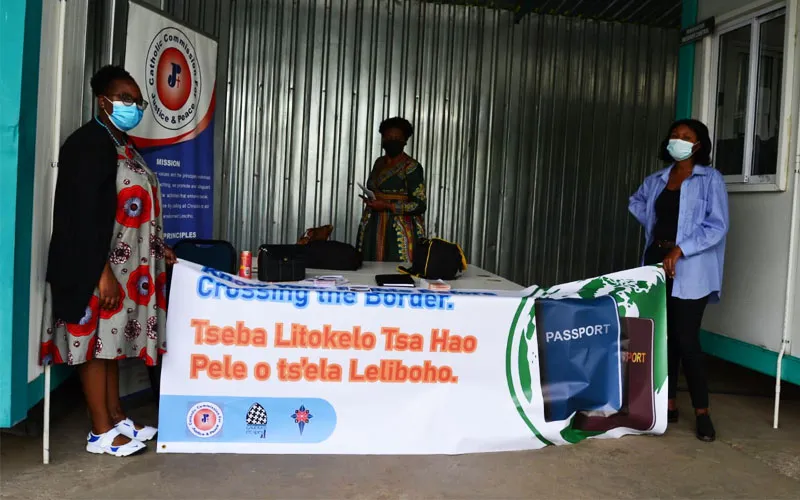Through advocacy, the initiative has the overall objective of providing “pastoral care for people on the move at the border crossing,” the official of CCJP in Lesotho said about the Coordinated Advocacy Project that is being rolled out under the theme, “Know Your Rights Before Crossing the Border”.
The initiative that is expected to last for a year has been spearheaded by members of the Southern African Catholic Bishops Conference (SACBC) and targets people arriving at the borders of Zimbabwe, Mozambique, Lesotho, and South Africa, Ms. Nkune told ACI Africa April 5.
The Basotho CCJP official went on to highlight factors behind the reality of migrants and refugees.
She said, “Lesotho is a landlocked country; we cannot go anywhere without going through South Africa first.”
“There are many reasons why people decide to leave Lesotho,” Ms. Nkune said, and explained, “Unemployment is very high presently and it contributes to human trafficking and illegal (border) crossing.”
Illegal border crossing has resulted in a number of challenges including loss of life, and women being exposed to sexual abuse, she told ACI Africa April 5, and added, “There are guys who call themselves ‘butterfly’; they help people cross the river, and often change the initial price when they are in the middle of the river.”
“And if you are a man and cannot afford, its either they are robbed or left stranded in the middle of the river,” Ms. Nkune further said, adding that for women, they “are forced to offer sexual favors and if they refuse, they are left to drown.”
Some of the people on the move, she said, “cannot afford to pay for a passport, so they opt to cross illegally into South Africa by crossing the river; and if they do have a passport, they cannot afford to return to Lesotho at the end of every 30 days to renew the visa given at the border.”
The CCJP official in Lesotho explained the financial challenges around crossing the border saying, “to stay in South Africa for either work purposes or to study, one needs to go through some legal requirements including a police clearance and a fee of about 900 rands (US$61).”
In the April 5 interview, Ms. Nkune acknowledged with appreciation the participation of various organization in the March 31 launch of the Coordinated Advocacy Project.








